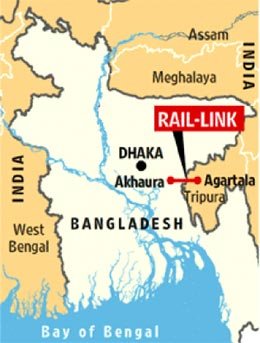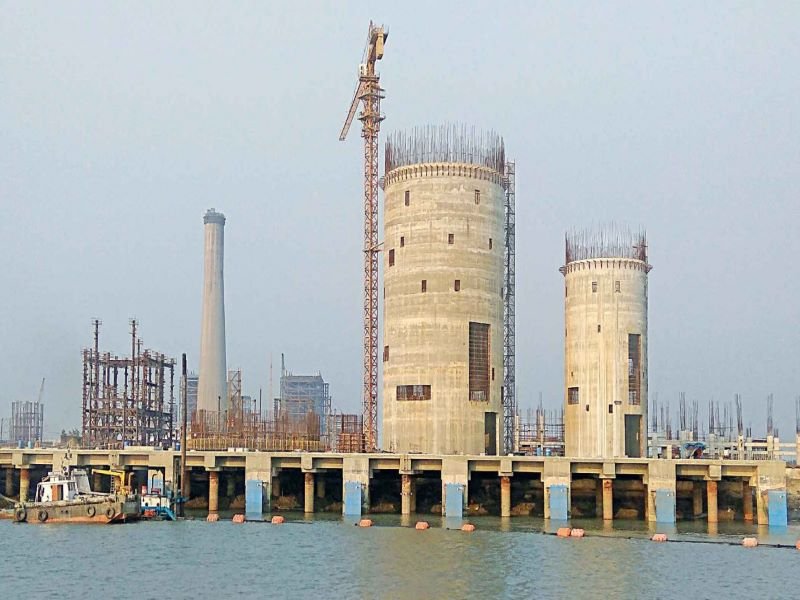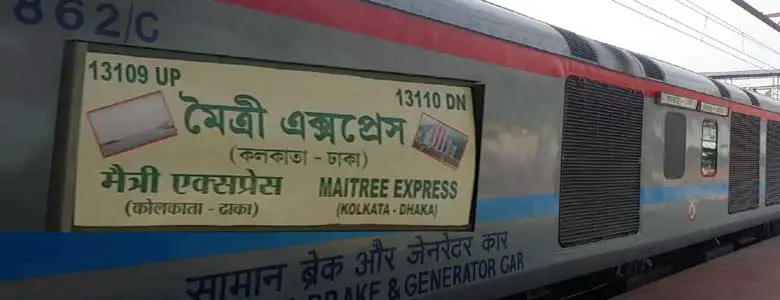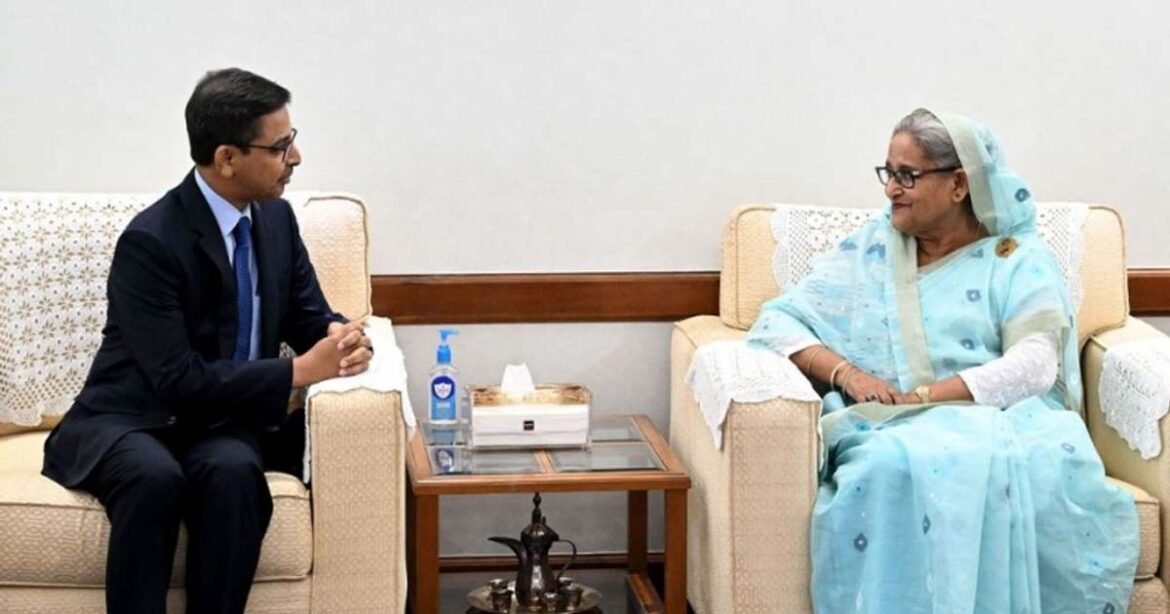Indian High Commissioner in Dhaka, Pranay Verma, visited Prime Minister Sheikh Hasina at her official residence, Ganobhaban, to discuss various issues pertaining to the relationship between Bangladesh and India. The topics of discussion included the Taka-Rupee exchange system, connectivity, and the progress of ongoing projects supported by the Indian Line of Credits and grants.
According to Ihsanul Karim, Bangladesh’s premier’s press secretary, both Prime Minister Sheikh Hasina and the Indian envoy expressed satisfaction with the current state of the bilateral relations. During the meeting, Sheikh Hasina also expressed her desire for India to advocate for the interests of the Global South, along with the entire world, at the forthcoming G20 Summit in Delhi.
You can also read: UAE Special Envoy Applauds PM Hasina’s Climate Leadership, Calls for Unwavering Support
Also present at the meeting were Bangladesh PM’s Ambassador-at-Large, Mohammad Ziauddin, PMO Secretary, Mohammad Salahuddin, and Indian Deputy High Commissioner, Dr. Binoy George.Top of Form
Topics of discussion
As per the spokesperson from the Bangladesh Prime Minister’s office, Verma briefed Sheikh Hasina about the proposal to introduce two types of credit cards, one in Rupees and the other in Taka. The aim is to facilitate financial transactions for individuals from both nations using these cards.
Verma also emphasized that this initiative would be especially advantageous for the considerable number of Bangladeshis who frequently travel to India for various reasons. These credit cards would offer them convenience and ease of use during their visits.
The three infrastructural projects discussed during the meeting are as follows:
- Maitree Super Thermal Power Plant-2
- 65-kilometre-long Khulna-Mongla Port Railway Link
- Akhaura (Bangladesh) and Agartala (India) Railway Link

Projects at a glance
The power plant mentioned is intended to serve as the second unit of the Rampal power plant, situated in the southwestern region of Bangladesh. Additionally, there are two other noteworthy infrastructure projects on the agenda: the Khulna-Mongla Port Railway Link, which spans 65 kilometers, and the Akhaura (Bangladesh) and Agartala (India) Railway Link.
The Maitree Super Thermal Power Plant-2, situated in southwestern Bangladesh, serves as the second unit of the Rampal power plant. This project, with a capacity of 660 MW, was established as a 50:50 joint venture between Bangladesh and India. The first unit of the power plant, also boasting a 660 MW capacity, became operational in December of the previous year.
Alongside this power plant, two other significant infrastructure projects were discussed. The first is the Khulna-Mongla Port Railway Link, stretching over 65 kilometers. The second is the Akhaura (Bangladesh) and Agartala (India) Railway Link.
The official revealed that funding for the Maitree Super Thermal Power Plant-2 and the Khulna-Mongla Port railway track was provided through an Indian Line of Credit. On the other hand, the Akhaura (Bangladesh) and Agartala (India) Railway Link was accomplished with the assistance of an Indian grant.

Last week, Bangladesh and India made significant progress by commencing a trade transaction using their own local currencies, with the goal of decreasing dependence on the US dollar and enhancing regional currency and trade stability. This event marked the first time Bangladesh engaged in bilateral trade with a foreign country using a currency other than the US dollar.
Additionally, it’s worth mentioning that both nations have previously conducted frontier trading in specific regions known as “border huts,” involving a semi-formal exchange of limited-scale currencies between the two countries.
India-Bangladesh ever-strengthening relations
India and Bangladesh share a profound historical, civilizational, and cultural bond, which has fostered strong social, economic, and political connections since Bangladesh’s liberation in 1971. Their ties are deeply rooted in a shared history, common heritage, linguistic and cultural affinities, and a mutual love for arts, music, and literature, resulting in a unique camaraderie and friendship between the two nations.
India has consistently valued its close relationship with Bangladesh and is committed to further strengthening their ties while actively supporting Bangladesh’s development efforts. Adhering to the principles of the ‘Neighbourhood First’ policy, India considers Bangladesh a vital partner in regional cooperation.
Collaboration between both countries spans various domains, including trade and commerce, power and energy, transportation and connectivity, science and technology, defense and security, maritime affairs, climate change, and sustainable development, among other significant areas.
Bilateral trade and investment:
In terms of trade, India holds the position of being Bangladesh’s second-largest trading partner, while Bangladesh stands as the fourth-largest export destination for India. Despite the challenges posed by the COVID-19 pandemic on the global economy, bilateral trade has displayed a consistent and rapid growth trajectory, soaring from USD 9.69 billion in FY 2020-21 to USD 16.15 billion in FY 2021-22.
In recent times, there have been significant strides in the bilateral relationship between India and Bangladesh. A noteworthy milestone was reached in 2015 when both countries successfully resolved a long-standing land boundary dispute through peaceful and amicable means, setting a positive foundation for their cooperation.
Subsequently, India and Bangladesh have collaborated on various developmental projects. Notably, India has provided financial backing for several infrastructure and connectivity initiatives in Bangladesh through its Line of Credit program. The total funding for these projects has now exceeded eight billion dollars, extended at a concessional rate.
Infrastructures:
One of the noteworthy connectivity projects between India and Bangladesh is the multimodal road-rail link connecting Agartala in India’s Tripura to Akhaura in Bangladesh, which serves as an excellent model for enhanced collaboration. Additionally, efforts to improve physical connectivity have led to the reopening of an old rail link between Chilahati and Haldibari, along with regular train services connecting Kolkata and Dhaka, and bus services from Dhaka to Shillong, Agartala, and Kolkata.
In terms of waterways connectivity, various new routes have been activated, including the establishment of a new bridge across the Feniriver. This bridge has significantly facilitated the movement of goods and passengers from Tripura to Bangladesh, further cementing the ties between the two nations.
Power and energy sectors:
To further bolster their energy security partnership, both countries have established a Framework of Understanding on Cooperation in the Hydrocarbon Sector. As part of this joint effort, they are implementing the India-Bangladesh Friendship Pipeline Project, connecting Siliguri in West Bengal (India) to Parbatipur in Dinajpur district (Bangladesh).
This pipeline project is aimed at ensuring a consistent and reliable flow of energy resources between the two nations, thereby strengthening their energy ties and fostering greater cooperation in this critical sector.
Connectivity:
India and Bangladesh have established an exemplary model of connectivity encompassing all modes of transport. To facilitate smooth movement of goods by road, they have set up 36 functional Land Customs Stations (LCSs) and 2 Integrated Check Posts (ICPs) along the border. The Petrapole-Benapole ICP, responsible for over 50% of bilateral trade, has been operating 24×7 since August 1, 2017.
Since 1972, the Protocol on Inland Water Trade and Transit (PIWTT) has been operational, allowing the transportation of goods through barges/vessels on eight specified routes within Bangladesh’s river systems. This includes the trans-shipment of goods to the Northeastern States of India through Ashuganj river port and Akhaura-Agartala by road, starting in June 2016 under the PIWTT.
Additionally, the Coastal Shipping Agreement, signed during Prime Minister Narendra Modi’s visit to Bangladesh in June 2015, facilitates direct sea movement of containerized/bulk/dry cargo between the two countries. Container ship services between Kolkata and Pangaon commenced in February 2017 under this framework.
Four out of the six former rail links have been restored as Broad Gauge inter-country rail links. The Radhikapur-Birol rail link was the most recent to be reinstated during Prime Minister Sheikh Hasina’s visit in April 2017. Work on the remaining two new rail links is ongoing, with the 7th new rail-link between Agartala and Akhaura being financed through India’s grant assistance.

The ‘Maitree Express’ between Kolkata and Dhaka now operates four days a week as a fully AC train service. The trial run of the 2nd Maitri Express between Khulna-Kolkata was conducted during Prime Minister Sheikh Hasina’s visit to India in April 2017 and is set to begin soon.
Regular bus services connect Kolkata-Dhaka, Shillong-Dhaka, and Agartala-Kolkata via Dhaka. Additionally, a new bus service (Dhaka-Khulna-Kolkata) was launched during Prime Minister Sheikh Hasina’s visit in April 2017.
The Bangladesh, Bhutan, India, and Nepal – Motor Vehicle Agreement (BBINMVA) is expected to significantly enhance road connectivity. A trial run of Cargo Movement on Trucks from Kolkata to Agartala via Dhaka and Dhaka to New Delhi via Kolkata and Lucknow was conducted in August 2016.
Air connectivity between India and Bangladesh is also well-established, with approximately 100 weekly flights connecting various Indian cities like New Delhi, Kolkata, Mumbai, and Chennai to Dhaka and Chittagong. Airlines such as US-Bangla Airlines, NOVOAIR, Regent Airways, and Biman Bangladesh from Bangladesh, and Jet Airways, Spice Jet, and Air India from India operate flights between the two countries.
Regional cooperation:
Apart from their robust bilateral relationship, India and Bangladesh actively engage in regional cooperation mechanisms through multilateral forums such as SAARC (South Asian Association for Regional Cooperation), BIMSTEC (Bay of Bengal Multi-Sectoral Technical and Economic Cooperation), and IORARC (Indian Ocean Rim Association for Regional Cooperation), among others.
These platforms offer opportunities for both countries to strengthen regional collaboration and address shared concerns related to regional security, connectivity, and infrastructure development in the area. By actively participating in these forums, India and Bangladesh demonstrate their joint vision and dedication to fostering mutual prosperity and stability in the broader South Asian and Indian Ocean regions.
Education and training:
India and Bangladesh share diverse and continuously growing connections. To aid Bangladesh’s development, India unilaterally offers a range of scholarships and training programs to Bangladeshi nationals, including ITEC, TCS of Colombo Plan, ICCR, AYUSH, Commonwealth, SAARC, and IOR-ARC scholarships/fellowship schemes.
Amidst the challenging times of the COVID-19 pandemic, India demonstrated its friendship by providing Bangladesh with free vaccines and essential medical supplies such as PPE kits and medicines. This assistance reflects the strong bond and goodwill between the two neighboring countries.
India and Bangladesh have numerous prospects to elevate their bilateral relations. The pillars of this relationship should be based on cooperation, collaboration, and consolidation. A fundamental requirement for progress is to uphold peace between the two nations.
Achieving this goal necessitates effective border management, ensuring a peaceful, secure, and crime-free border region. By joining forces and emphasizing peace, India and Bangladesh can forge a more robust and prosperous partnership.
The exemplary relationship between India and Bangladesh serves as a role model for fostering good neighborly relations in the region. It emphasizes the significance of cooperative behavior among states to ensure a peaceful and stable South Asia. Through such collaboration and mutual support, both nations continue to strengthen their ties and contribute to the prosperity and well-being of their people.


